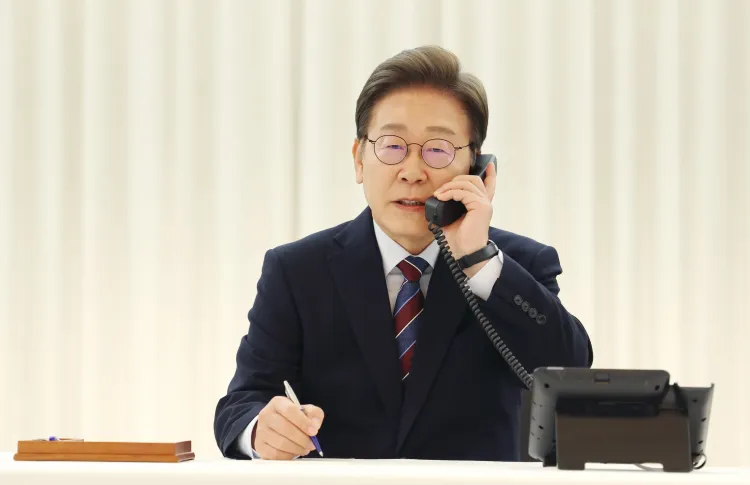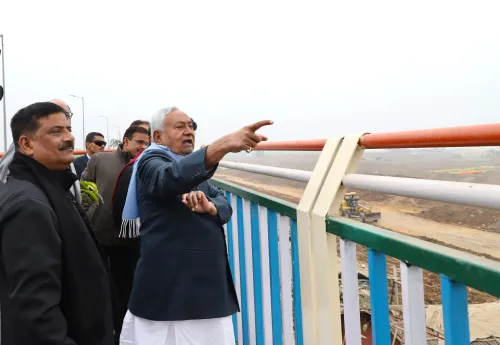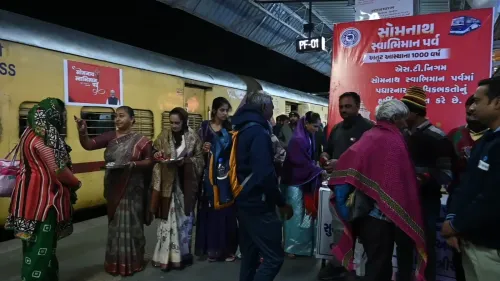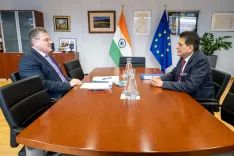How Are South Korea's Lee and Japan's Ishiba Tackling Geopolitical Crises with US Support?

Synopsis
Key Takeaways
- Trilateral Cooperation: South Korea, Japan, and the US to address geopolitical crises.
- Bilateral Relations: Emphasis on strengthening ties between South Korea and Japan.
- Future Meetings: Potential in-person meeting at the G7 summit.
- Policy Continuity: Lee plans to uphold previous administration's policies on Japan.
- Political Context: Lee's election represents a comeback amid political turmoil.
Seoul, June 9 (NationPress) President Lee Jae-myung of South Korea and Prime Minister Shigeru Ishiba of Japan have reached a consensus to address geopolitical challenges through trilateral cooperation with the United States during their initial phone conversation on Monday, as stated by the presidential office.
During their 25-minute dialogue, both leaders emphasized the significance of their bilateral relationship and expressed a desire to meet face-to-face soon, according to presidential spokesperson Kang Yu-jung.
"Lee expressed optimism that the two nations would collaborate on finding mutually advantageous solutions to future challenges, considering their shared national interests," Kang noted.
President Lee, known for his 'pragmatic' diplomatic approach, and Ishiba concurred on the necessity to cultivate a more 'solid and mature' bilateral relationship founded on 'mutual respect, trust, and responsible attitudes,' he added.
As the two countries prepare to commemorate the 60th anniversary of the normalization of diplomatic relations this month, they agreed to foster people-to-people exchanges and improve government communication, as reported by Yonhap News Agency.
The Group of Seven summit in Canada, scheduled for June 15-17, where President Lee is invited as a guest, may serve as a potential venue for their first in-person meeting.
Since taking office, Lee has highlighted the importance of coherent policies in dealings with Japan, signaling his intent to maintain the previous administration's stance on the wartime forced labor issue, which has contributed to easing tensions between Seoul and Tokyo.
This marks Lee's second conversation with a foreign leader, following his initial call with US President Donald Trump on Friday.
Additionally, Lee's office is coordinating a phone call with Chinese President Xi Jinping, according to a senior presidential official.
Lee was elected President after navigating a tumultuous political landscape, which included the impeachment and removal of his predecessor due to a botched attempt to impose martial law.
His victory is notable, especially after narrowly losing to former President Yoon Suk Yeol by less than 1 percentage point in the 2022 election.
While Yoon's attempt to impose martial law in December facilitated Lee's ascent to the presidency, it also intensified the country's political polarization and heightened challenges related to US tariff policies and North Korea's advancing nuclear capabilities.










